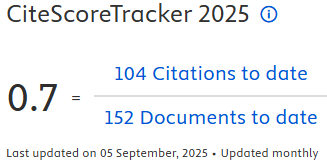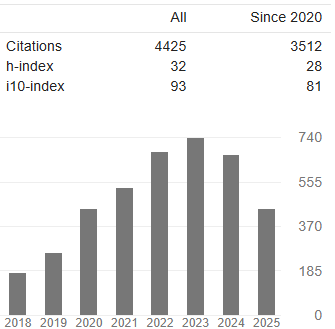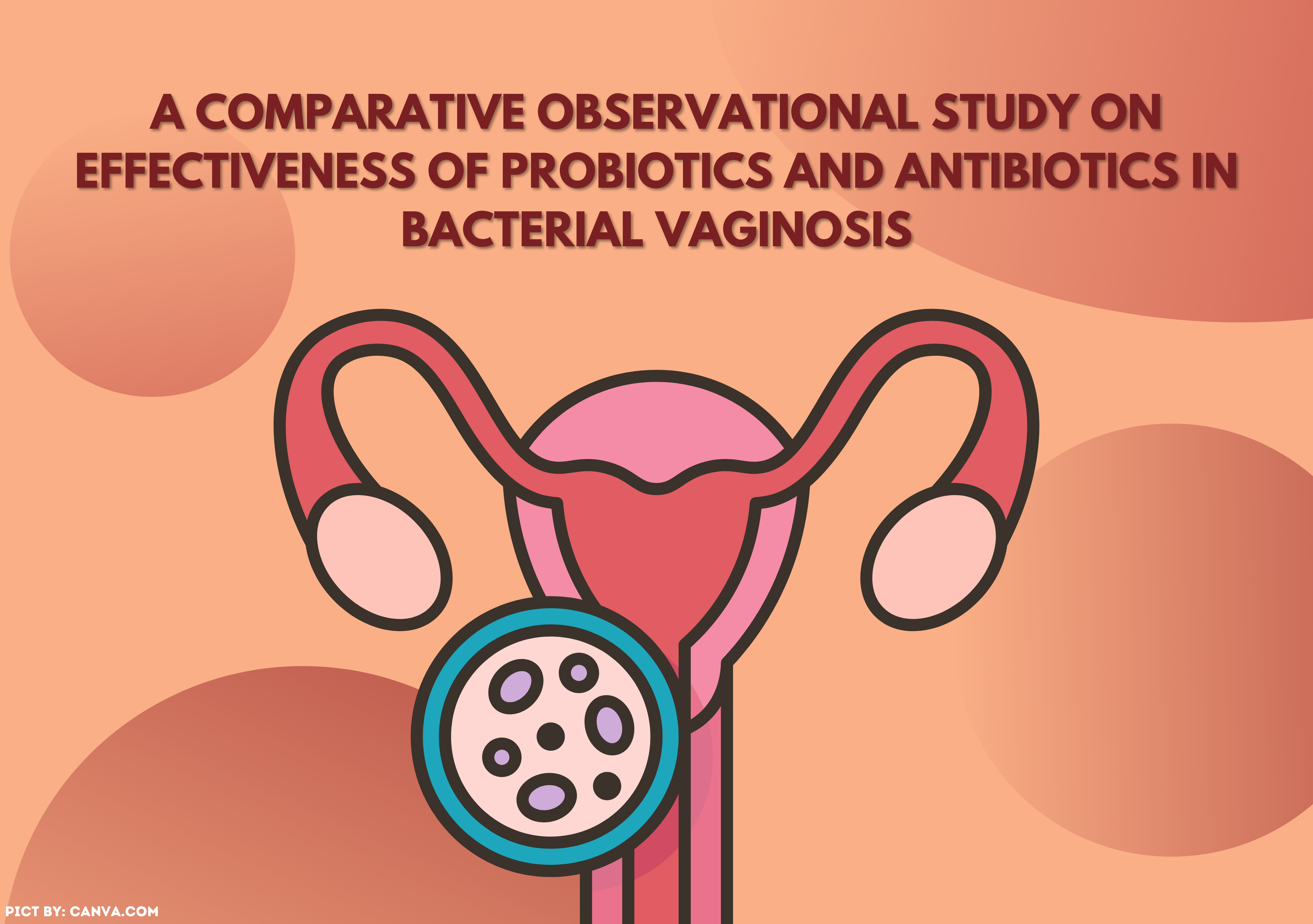SOCIAL SUPPORT IN ACCESSING ADOLESCENTS MENTAL HEALTH SERVICES

Introduction: The survey reported that adolescents experienced severe depression (15.6%) and extreme stress (6.3%) in Warungboto, Yogyakarta, Indonesia. In fact, with this condition, they are reluctant to access mental health services. Adolescents' skills still lacking in problem-solving and inadequate social support are thought to be the triggering factors for low access to health services. Aims: to determine the social support for adolescents in accessing mental health services. Methods: This type of research is quantitative research with a cross-sectional approach. The unit of analysis is adolescents (15-24 years) who are identified as having stress and depression based on the results of early detection of mental health. The sample size is 36 teenagers, with a total sampling technique. The variables are family support, peer support, mental health status, problem-solving, and self-control measured in the questionnaire. Meanwhile, mental health status was assessed using DASS-21 and PSS-10. Results: There was a significant relationship between social support from family (p-value 0.001, 95% CI 1.581-76.551) and peers (p-value 0.018, 95% CI 1.108 – 2.608) with adolescent mental health status. Adolescents with depression and stress are very few who get good social support from their families in accessing mental health services. This study proves that family social support is a significant factor in accessing mental health services. Conclusion: Family involvement in overcoming adolescent mental health problems is crucial. However, health providers can also provide community-based mental health services with a peer approach.
Aguirre Velasco, A., Cruz, I.S.S., Billings, J., Jimenez, M. and Rowe, S., 2020. What are the barriers, facilitators and interventions targeting help-seeking behaviours for common mental health problems in adolescents? A systematic review. BMC Psychiatry, 20(1). https://doi.org/10.1186/s12888-020-02659-0
Ayuningtyas, D., Misnaniarti and Rayhani, M., 2018. Analysis of the Mental Health Situation of Communities in Indonesia and its Countermeasures. Jurnal Ilmu Kesehatan Masyarakat, 9(1). https://doi.org/10.26553/jikm.2018.9.1.1-10
Center for research and development of public health efforts, 2015. Health Risk Behavior in Junior and High School Students (Results of the National Survey of School-Based Health in Indonesia).
Cheng, Y., Li, X., Lou, C., Sonenstein, F.L., Kalamar, A., Jejeebhoy, S., Delany-Moretlwe, S., Brahmbhatt, H., Olumide, A.O. and Ojengbede, O., 2014. The association between social support and mental health among vulnerable adolescents in five cities: Findings from the study of the well-being of adolescents in vulnerable environments. Journal of Adolescent Health, [online] 55(6), pp.S31–S38. https://doi.org/10.1016/j.jadohealth.2014.08.020
Cleary, M., Lees, D. and Sayers, J., 2018. Friendship and Mental Health. Issues in Mental Health Nursing, 39(3), pp.279–281. https://doi.org/10.1080/01612840.2018.1431444
Cohen and Hoberman, 2020. Interpersonal Support Evaluation List (ISEL). https://doi.org/10.4324/9781003076391-157
Cohen, S., Kamarck, T. and Mermelstein, R., 1983. A Global Measure of Perceived Stress. Journal of Health and Social Behavio, 24, pp.385–396. https://doi.org/10.2307/2136404
Cohen, S. and Williamson, G., 1988. Perceived stress in a probability sample of the United States. The Social Psychology of Health, Available at: http://doi.apa.org/psycinfo/1988-98838-002
Glanz, K., Rimer, B. and Viswanath, K., 2008. Health Behavior and Health Education: Theory, Research, and Practice. 4th ed. Amerika Serikat: Jossey-Bass.
Health Office of Special Region of Yogyakarta, 2018. Basic Health Research 2018: Severe Mental Disorders in DIY Soared Rank 2 Nationally. Yogyakarta.
Heaney, C.A. and Israel, B.A., 2002. Social Networks and Social Support. In: K. Glanz, B.K. Rimer and K. Viswanath, eds. Health behavior and health education : theory, research, and practice, 4th ed. United States of America: Jossey-Bass. pp.189–207.
Jakarta Health Polytechnic I Ministry of Health Republic of Indonesia, 2010. Youth Health: Problems and Solutions. Jakarta: Salemba Medika.
Kaur, J. and Gera, M., 2016. Study of problem solving ability of adolescents in relation to parenting styles and resilience. International Journal of Psychology and Counselling, 8(2), pp.8–12. https://doi.org/10.5897/IJPC2015.0350
Keles, B., McCrae, N. and Grealish, A., 2020. A systematic review: the influence of social media on depression, anxiety and psychological distress in adolescents. International Journal of Adolescence and Youth, [online] 25(1), pp.79–93. https://doi.org/10.1080/02673843.2019.1590851
Kim, H., 2014. Enacted social support on social media and subjective well-being. International Journal of Communication, 8(1), pp.2201–2221.
Law of the Republic of Indonesia Number 12/2012 concerning Higher Education.
Leme, V.B.R., Del Prette, Z.A.P. and Coimbra, S., 2015. Social skills, social support and well-being in adolescents of different family configurations. Paideia, 25(60), pp.9–17. https://doi.org/10.1590/1982-43272560201503
Lovibond, P.F., n.d. Overview of the DASS and Its Uses.
Lovibond, S.H. and Lovibond, P.F., 1995. Manual for the Depression Anxiety Stress Scales. 2nd editio ed. Sydney: Psychology Foundation of Australia. https://doi.org/10.1037/t01004-000
Luz, R.T., Coelho, E. de A.C., Teixeira, M.A., Barros, A.R., Carvalho, M. de F.A.A. and Almeida, M.S., 2018. Mental health as a dimension for the care of teenagers. Revista brasileira de enfermagem, 71(suppl 5), pp.2087–2093. https://doi.org/10.1590/0034-7167-2016-0192
Ministry of Health Republic of Indonesia, 2018. The Basic Health Research 2018. Jakarta: Ministry of Health Republic of Indonesia.
Mirdad, H., 2018. Relationship between Family Roles and Depression Risk in Adolescent Victims of Sexual Violence at Bhayangkara Hospital Ambon. Global Health Science, 3(3), pp.211–216.
Nielsen, L., Shaw, T., Meilstrup, C., Koushede, V., Bendtsen, P., Rasmussen, M., Lester, L., Due, P. and Cross, D., 2017. School Transition and Mental Health Among Adolescents : A Comparative Study of School Systems in Denmark and Australia. International Journal of Educational Research, 83, pp.65–74. https://doi.org/10.1016/j.ijer.2017.01.011
Novianty, A. and Hadjam, M.N.R., 2017. Mental Health Literacy and Community Attitudes as Predictors of Seeking Formal Help. Jurnal Psikologi, 44(1), pp.50–65. https://doi.org/10.22146/jpsi.22988
Oke, D., 2019. The Relationship between Friendship Qualities and Mental Health among Undergraduates. Duke University.
Qi, M., Zhou, S.J., Guo, Z.C., Zhang, L.G., Min, H.J., Li, X.M. and Chen, J.X., 2020. The Effect of Social Support on Mental Health in Chinese Adolescents During the Outbreak of COVID-19. Journal of Adolescent Health, [online] 67(4), pp.514–518. https://doi.org/10.1016/j.jadohealth.2020.07.001
Radez, J., Reardon, T., Creswell, C., Lawrence, P.J., Evdoka-Burton, G. and Waite, P., 2021. Why do children and adolescents (not) seek and access professional help for their mental health problems? A systematic review of quantitative and qualitative studies. European Child and Adolescent Psychiatry, [online] 30(2), pp.183–211. https://doi.org/10.1007/s00787-019-01469-4
Rasyida, A., 2019. Inhibiting Factors in Seeking Formal Psychological Assistance Among Students. Jurnal Psikologi Indonesia, 8(2), pp.193–207. https://doi.org/10.30996/persona.v8i2.2586
Sheridan, A., O'Keeffe, D., Coughlan, B., Frazer, K., Drennan, J. and Kemple, M., 2018. Friendship and money: A qualitative study of service users' experiences of participating in a supported socialisation programme. International Journal of Social Psychiatry, 64(4), pp.326–334. https://doi.org/10.1177/0020764018763692
Sulaiman, N. and Mansoer, W.W., 2019. Warm Relationships With Parents, Caregivers And Friends With Depression Syndrome In Adolescent Orphanages In Jakarta. Jurnal PSYCHE 165, 12(2), pp.112–123. https://doi.org/10.35134/jpsy165.v12i2.7
Sulistiowati, N.M.D., Keliat, B.A., Wardani, I.Y., Aldam, S.F.S., Triana, R. and Florensa, M.V.A., 2019. Comprehending Mental Health in Indonesian's Adolescents through Mental, Emotional, and Social Well-Being. Comprehensive Child and Adolescent Nursing. 42(sup1), pp.277–283. https://doi.org/10.1080/24694193.2019.1594460
UNICEF, 2021a. Adolescent mental health statistics - UNICEF DATA. [online] UNICEF.
UNICEF, 2021b. The impact of COVID-19 on the mental health of adolescents and youth. Unicef.
UNICEF Indonesia, n.d. Young people take the lead on mental health.
Copyright (c) 2023 The Indonesian Journal of Public Health

This work is licensed under a Creative Commons Attribution-NonCommercial-ShareAlike 4.0 International License.
- The authors agree to transfer the transfer copyright of the article to The Indonesian Journal of Public Health effective if and when the paper is accepted for publication.
- Authors and other parties are bound to the Creative Commons Attribution-NonCommercial-ShareAlike 4.0 International License for the published articles, legal formal aspect of journal publication accessibility refers to Creative Commons Attribution-NonCommercial-ShareAlike 4.0 International License (CC BY-NC-SA), implies that:
- Attribution ” You must give appropriate credit, provide a link to the license, and indicate if changes were made. You may do so in any reasonable manner, but not in any way that suggests the licensor endorses you or your use.
- NonCommercial ” You may not use the material for commercial purposes.
- ShareAlike ” If you remix, transform, or build upon the material, you must distribute your contributions under the same license as the original.































